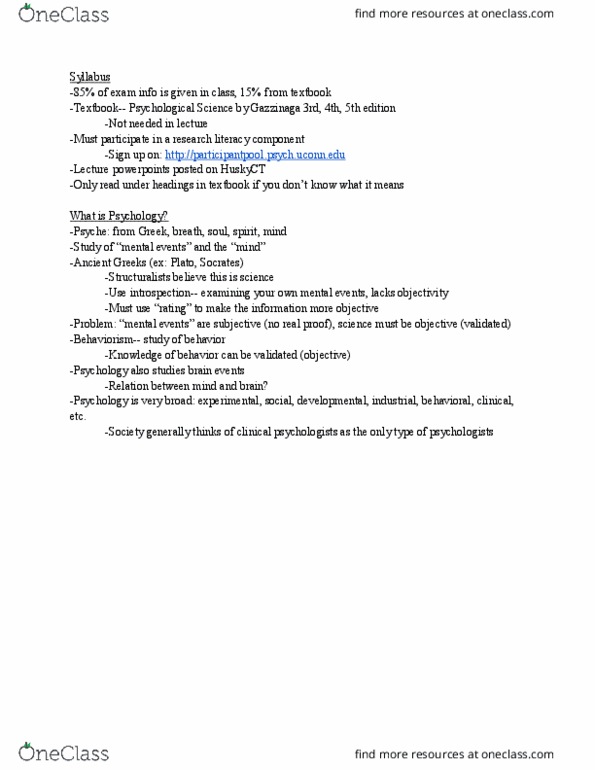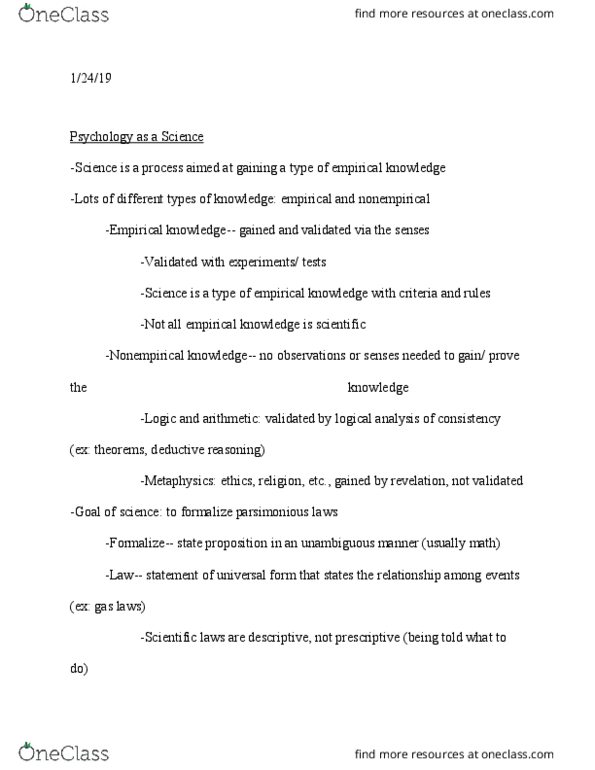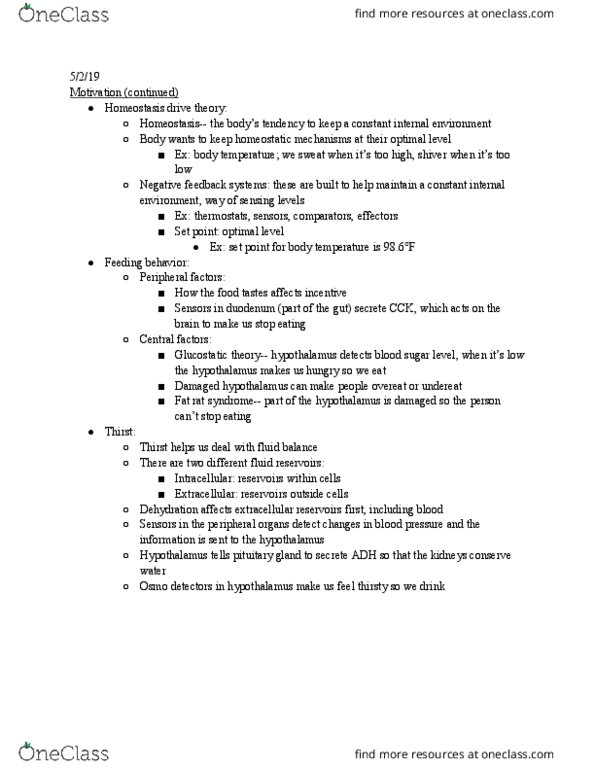PSYC 1100 Lecture Notes - Lecture 30: Blood Sugar, Drive Theory, Fluid Balance
PSYC 1100 verified notes
30/30View all
Document Summary
Homeostasis-- the body"s tendency to keep a constant internal environment. Body wants to keep homeostatic mechanisms at their optimal level. Ex: body temperature; we sweat when it"s too high, shiver when it"s too low. Negative feedback systems: these are built to help maintain a constant internal environment, way of sensing levels. Ex: set point for body temperature is 98. 6 . Sensors in duodenum (part of the gut) secrete cck, which acts on the brain to make us stop eating. Glucostatic theory-- hypothalamus detects blood sugar level, when it"s low the hypothalamus makes us hungry so we eat. Damaged hypothalamus can make people overeat or undereat. Fat rat syndrome-- part of the hypothalamus is damaged so the person can"t stop eating. Thirst helps us deal with fluid balance. Dehydration affects extracellular reservoirs first, including blood. Sensors in the peripheral organs detect changes in blood pressure and the information is sent to the hypothalamus.





